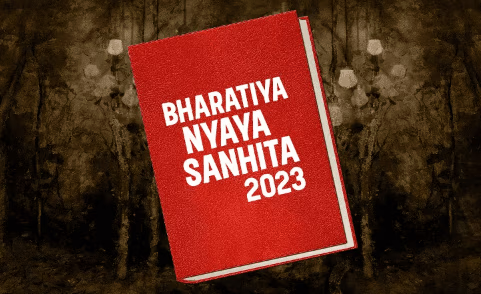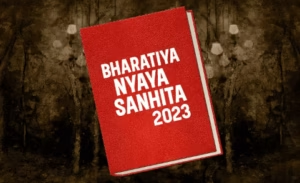Contents:-
- Introduction.
- Scope.
- Key Amendments in BNS 2023.
- Latest judgments impacting BNS.
- Important sections of BNS 2023.
- Conclusion.
Introduction:-
The Bhartiya Nyaya Sanhita (BNS), 2023, is a landmark legislation that replaces the colonial-era Indian Penal Code (IPC), 1860. Passed by Parliament and receiving Presidential assent in December 2023, BNS is part of a broader reform in India’s criminal justice system, alongside the Bhartiya Nagarik Suraksha Sanhita (BNSS) and Bhartiya Sakshya Adhiniyam (BSA). These reforms aim to decolonize and modernize criminal laws, making them more citizen-centric, victim-focused, and aligned with contemporary realities.
Scope of Bhartiya Nyaya Sanhita:-
- Simplification and Modernization: Colonial terminologies replaced with Indianized legal language.
- Victim-Centric Approach: Focus on victims’ rights and support systems.
- Technological Adaptation: Provisions for cybercrime, terrorism, and digital evidence.
- Gender Sensitivity: Improved language and protection for all genders.
- Faster Justice: Time-bound trials and investigations.
Key Amendments in BNS 2023:-
- Sedition Repealed:
IPC Section 124A replaced with Section 150 BNS, focusing on acts threatening India’s sovereignty. - Mob Lynching Recognized:
Punishable under Section 103(2), with life imprisonment or death for hate-motivated mob killings. - Terrorism and Organized Crime:
Defined and penalized under Sections 113 and 109, respectively. - Community Service as Punishment:
Introduced under Section 69, applicable for petty crimes. - Sexual Offences and Rape:
Section 85 retains core IPC language but mandates quick trials and medical reporting. - Time-Bound Trials:
Investigations must be completed within 90 days, trials within 2 years in specific offences. - Electronic Evidence:
Now legally admissible, strengthening cases involving digital communication.
Latest Judgments Impacting BNS:-
- SG Vombatkere v. Union of India (2022):
Put sedition law on hold, prompting its removal in BNS. - Tehseen S. Poonawalla v. Union of India (2018):
Laid legal groundwork for anti-lynching laws now codified in BNS. - Arjun Panditrao Khotkar v. Kailash Kushanrao Gorantyal (2020):
Validated digital evidence practices now formalized in the BNS framework.
Important Sections of Bhartiya Nyaya Sanhita (BNS), 2023:-
- Section 150 – Acts Endangering Sovereignty, Unity, and Integrity of India. Replaces IPC Section 124A (Sedition).Targets incitement to rebellion or separatism.
- Section 103(2) – Mob Lynching. Criminalizes hate-based mob violence. Allows death penalty in extreme cases.
- Section 69 – Community Service. Introduces non-custodial punishment for minor crimes.
- Section 113 – Terrorist Act. Clearly defines terrorism and assigns strict penalties.
- Section 109 – Organized Crime. Covers syndicate crimes, extortion, drug trafficking.
- Section 73 – Grievous Hurt by Acid Attack. Stronger sentencing for acid attack perpetrators.
- Section 85 – Rape. Ensures speedier justice and victim support measures.
- Section 173 – Theft. Retains and updates provisions related to property theft.
- Section 356 – Attempt to Commit Offences. Punishes criminal attempts similar to the full offence.
- Section 354 – Criminal Conspiracy. Modernized definition, relevant to cyber and financial fraud.
Conclusion:-
The Bhartiya Nyaya Sanhita represents a significant shift toward a modern, Indianized, and equitable justice system. With a greater focus on victims, updated definitions, and digitization, BNS promises quicker, fairer trials. The success of these reforms will depend on training, infrastructure, and strong judicial oversight.







3 Responses
thanku so much for such informative content.
nice …gud job
Very informative and useful.